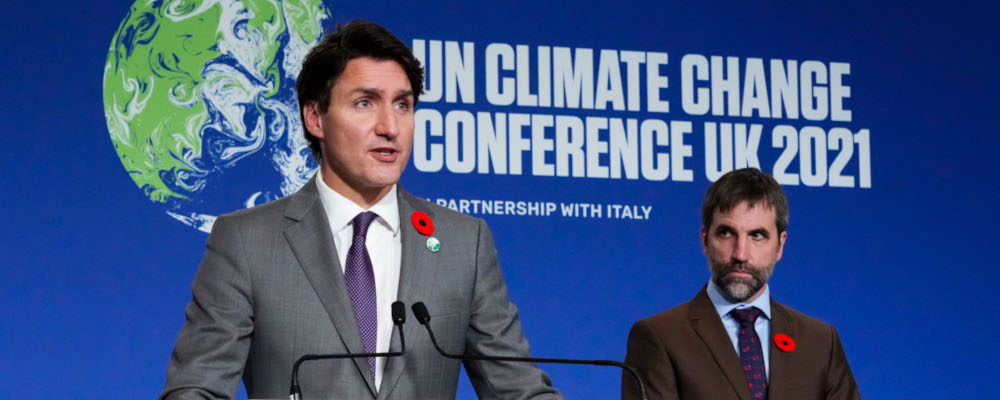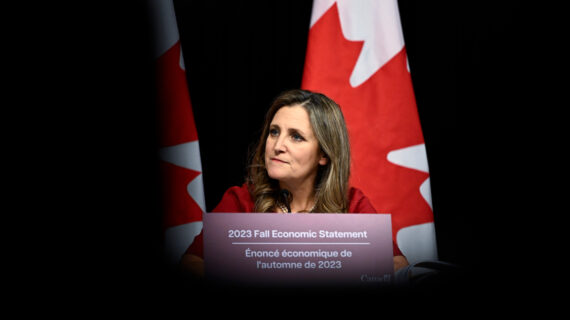Energy is the economy
This is not hyperbole. For decades, the correlation between energy consumption and GDP has been nearly perfect.
This makes sense if you stop to think about it; after all everything that makes up the stuff of our daily lives—our household furnishings, the iWatch on our wrist, the fast-fashion shirt on your back—has been produced and transported by machinery powered by fossil fuels. In a very real sense, the goods that we benefit from every day are really just transformed energy.
Energy is the backbone of modern life. Energy is life.
It is therefore axiomatic that if our voracious appetite for consumer goods and services were to disappear, so too then would our demand for energy. The loathsome energy companies that supply these essentials of life would disappear due to a lack of customers without any need for emissions caps, pipeline restrictions, or carbon taxes at all.
Except that, for the time being, those companies are sort of important. In total, fossil fuels comprise around 84 percent of all the energy consumed on earth. This is not much of a reduction on a relative basis from the 86 percent that they supplied 20 years ago and in real terms is a considerable increase. Net zero by 2050 might be a laudable dream but it isn’t going to happen without time to implement it and trillions of dollars being spent to upgrade power grids and invent the new technologies that the International Energy Agency says will be necessary. Even then, intermittency of solar and wind combined with physical limitations inherent to battery technology may keep that goal perpetually out of reach.
As citizens in the developed world, we want contradictory things. We want the trappings of modern life but not the guilt of producing the emissions that support that standard of living. We are unwilling to give up bananas in winter or the supercomputer in our pocket (itself dependent on massive, energy-intensive server farms), but according to surveys, Canadians are unwilling to pay very much to address the situation. In short, we want to believe that there is an easy, cost-free, and painless way to make our carbon footprint disappear without reducing our standard of living, and so that’s what we’ve been sold by our politicians. We’ve been told this appealing lie for so long now that we have come to believe their simple nonsense even when it boils down to mostly exporting our carbon footprint to other places or burying the true costs in the supply chain.
We have now reached the stage where investors, bankers, and endowments refuse to put their money into support for domestic oil and gas production while at the same time U.S. President Joe Biden begs OPEC to increase production rates and Europeans worry about freezing in their apartments this winter because they have come to depend on Vladimir Putin continuing to supply them with natural gas.
Energy is life and the developed world has ceded its energy security to nations that are not our allies. This is madness.
It is a strange strategy that purports to “solve” a problem like carbon dioxide emissions by destroying supply without first building its replacement, given the obviously inelastic nature of demand, particularly in a very large, very cold country like Canada. You might think that the apparent hypocrisy of government leaders flying on private jets to distant conferences might cause the veil to slip a little bit, but perhaps these leaders aren’t so different from the self-righteous university student who drives to campus but then lobbies their school’s endowment fund to divest from fossil fuels. Or the flying traveler who buys carbon offsets to assuage their guilt, much like purchasing indulgences from the Catholic Church in a bygone era.
The developed world has ceded its energy security to nations that are not our allies. This is madness.
Simple solutions to complex problems make us feel better because we are “doing” something, even if it is of little practical impact in the real world as long as the costs are negligible.
Which leads us to the simple “solution” that Canada can do its part by reducing the production of Alberta energy. Never mind that oil is Canada’s largest export industry, accounts for 10 percent of our GDP, and Canada has the free world’s largest hydrocarbon deposits which are subject to environmental regulations like nowhere else on earth. In a world with inexorable demand issues, we decide to punish our own economy while the world heads into an entirely foreseeable energy crisis and we watch our allies beg tyrants for more petroleum while refusing our own. They export dollars that could easily end up here to help support our own energy transition. It’s a lose/lose for Canada.
And it gets worse. With the recent announcement at the COP26 conference in Glasgow, upstream oil and gas producers, which have already made substantial improvements in emission-intensity, will be subject not only to a carbon tax, but a hard cap as well. In contrast, transportation which produces a roughly equivalent quantity of emissions, won’t be. This is neither fair nor rational.
A cynic would say that it is because energy is produced in Alberta and Saskatchewan where there are few Liberal votes to be lost whereas automobiles are built in Ontario where there are. In this case the cynic is probably correct. By similar logic, it’s perfectly acceptable that North America’s largest coal export terminal is based in Vancouver, since the coal is burned in China and there are votes to be harvested in British Columbia.
The double standard is particularly troublesome in Canada because it is such a divisive approach to take in a nation where the governing party garnered less than one-third of the recent vote and where there are apparently no federal leaders prepared to stand up and state the obvious: this is insanely hypocritical, will not improve the state of global emissions, will cost the Canadian economy billions of dollars, and will contribute to the continued fracturing of our fragile confederation.
All it will actually do is make some Canadians feel better about themselves while offloading the costs predominantly on the portion of the country which has no voice in its governing.
We need honesty: the energy transition will take time and Canadian energy is the best in the world. Every one of us represents a portion of energy demand. Pointing our fingers in blame at one industry that has done much to reduce its impact, and that generates enormous economic benefits to Canada might make citizens feel like the heavy lifting has been done but won’t solve the problem. A strategy that throws one critical industry under the bus so that the rest of Canada can pretend they have done their part is the very opposite of nation-building.




